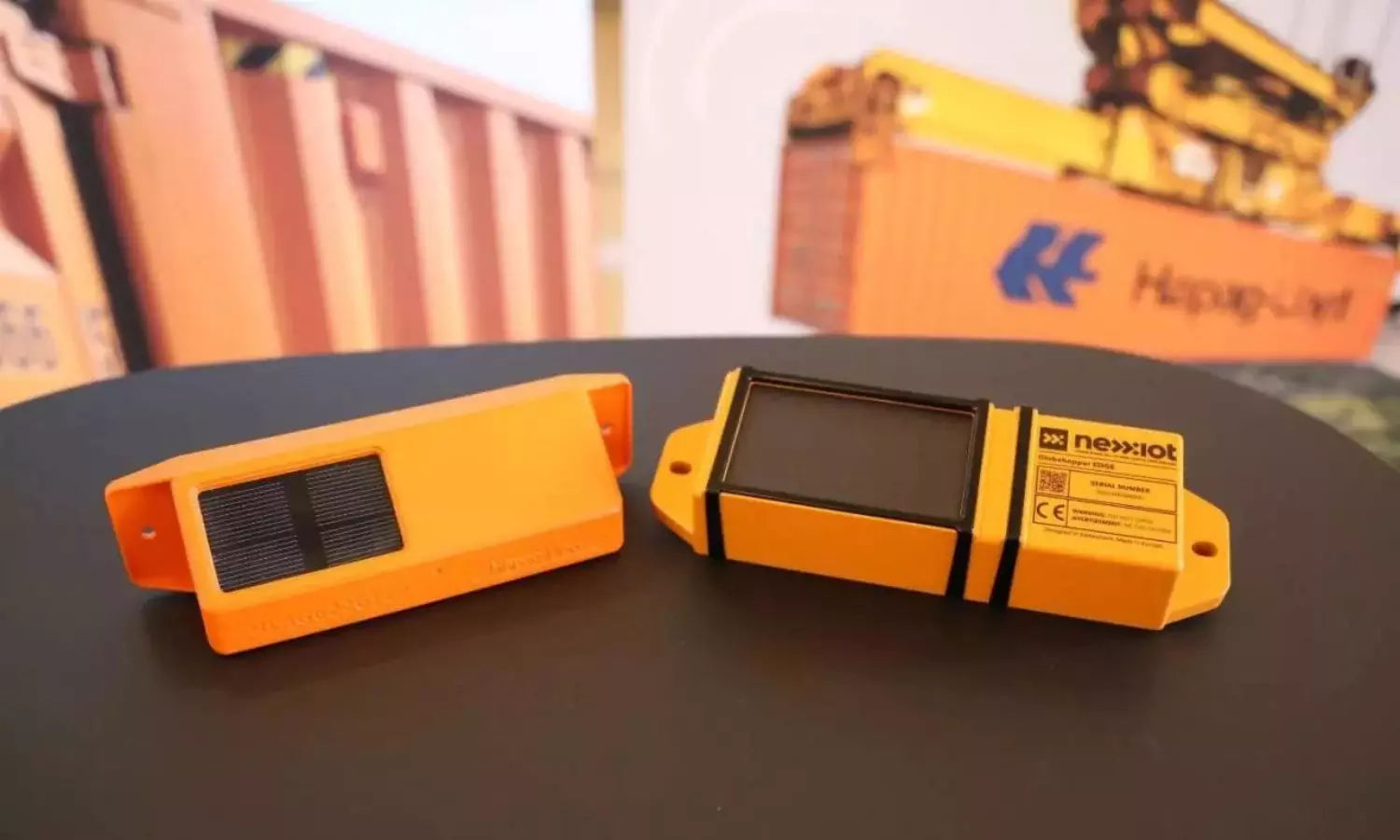Smart container fleet to expand 6-fold over 5 years, says Drewry
Drewry forecasts that number of smart containers in global fleet will reach over 10 million units

(Photo credit: Hapag-Lloyd)
The global telematics-enabled container equipment fleet is forecast to grow six-fold over the next five years, and account for 30 percent of global box inventories by 2027, driven by wider adoption across the dry container fleet.
"This is one of the main conclusions from Drewry’s recently published Container Census & Leasing Annual Review & Forecast 2023/24 report," says an official release.
A container becomes “smart” when fitted with a telematics device that provides real-time tracking and monitoring, enabling operators to increase turn time of their containers and so improve equipment availability. It also allows beneficial cargo owners (BCOs) to understand the location and status of their cargo so that they can better control their supply chains, the release added.
"Smart containers have increased in prominence in recent years, a trend that accelerated following the onset of the Covid-19 pandemic and resultant supply chain disruption, which highlighted the need for better cargo visibility to cope with longer and more volatile transit times. The pace of adoption of smart containers is expected to accelerate over the next five years as device costs fall and first mover carriers challenge others to follow."
Drewry estimates that around 5.6 percent of the global container equipment fleet was fitted with smart technology devices by the end of 2022, following growth of 57 percent through the year; an acceleration from the 32 percent gain recorded the previous year. "However, take-up varies considerably by equipment type with penetration already strong in reefer and intermodal containers but much lower in the dry box sector. Already over half of both the maritime reefer and land based intermodal container fleets are smart-enabled, the former up from a third last year," according to Drewry estimates.
Drewry forecasts that the number of smart containers in the global fleet will reach over 10 million units, representing as much as 30 percent of worldwide box inventories. "As technological innovation lowers the cost of devices and enhances their value to both transport operators and BCOs, uptake is expected to hasten."
Several carriers, including Hapag-Lloyd and Japan’s ONE, have publicly committed to equipping their entire dry box fleet with smart devices, "the former as soon as next year." Shipping lines are expected to focus on building a critical mass of smart device installs to leverage operational benefits across their container fleets and cargo operations while readying for the next step change in supply chain visibility service offerings, the release added.


